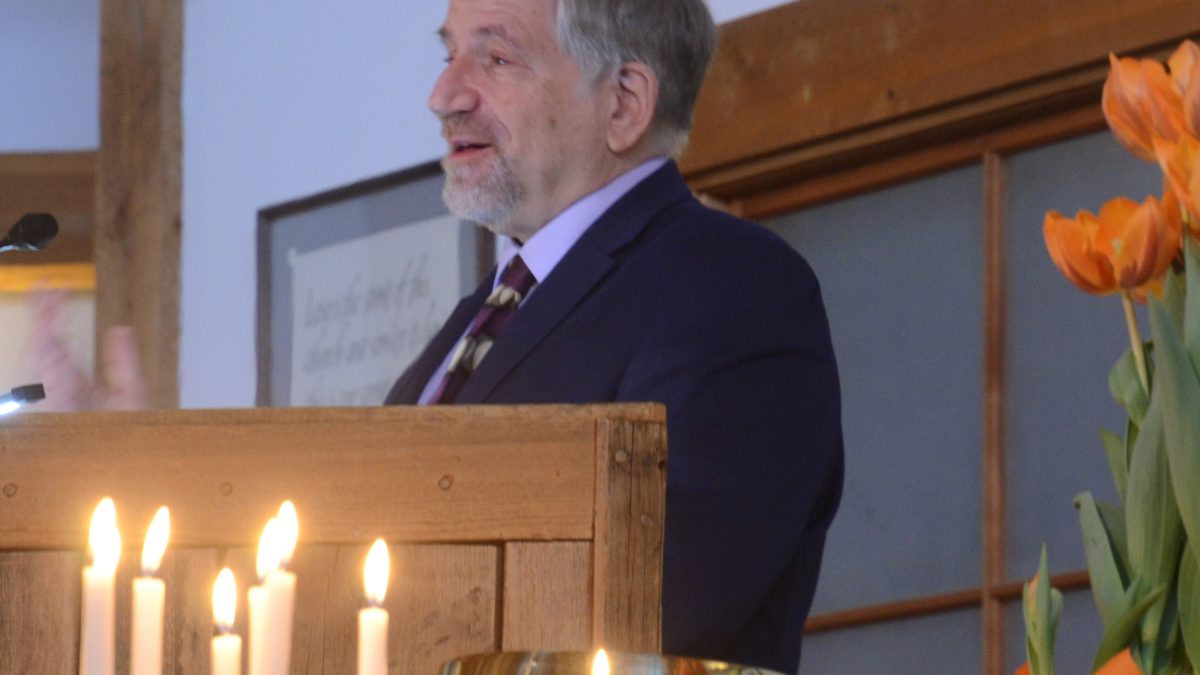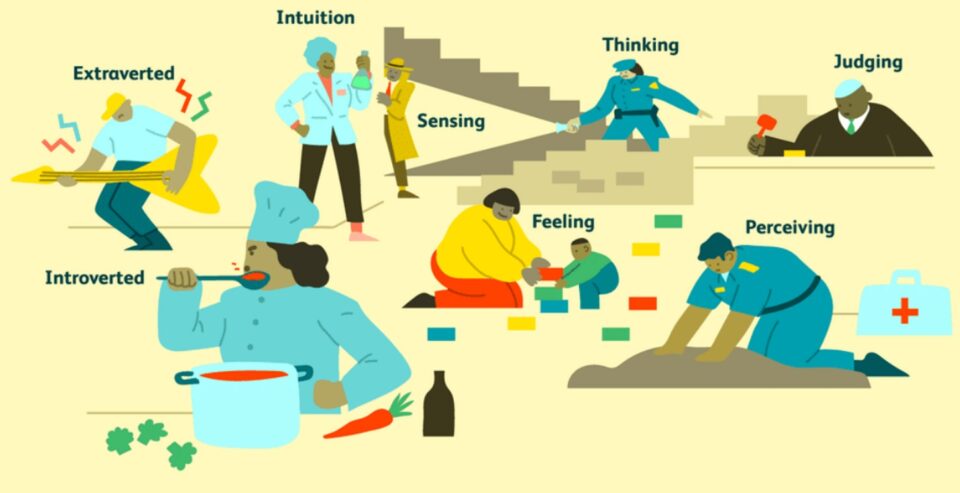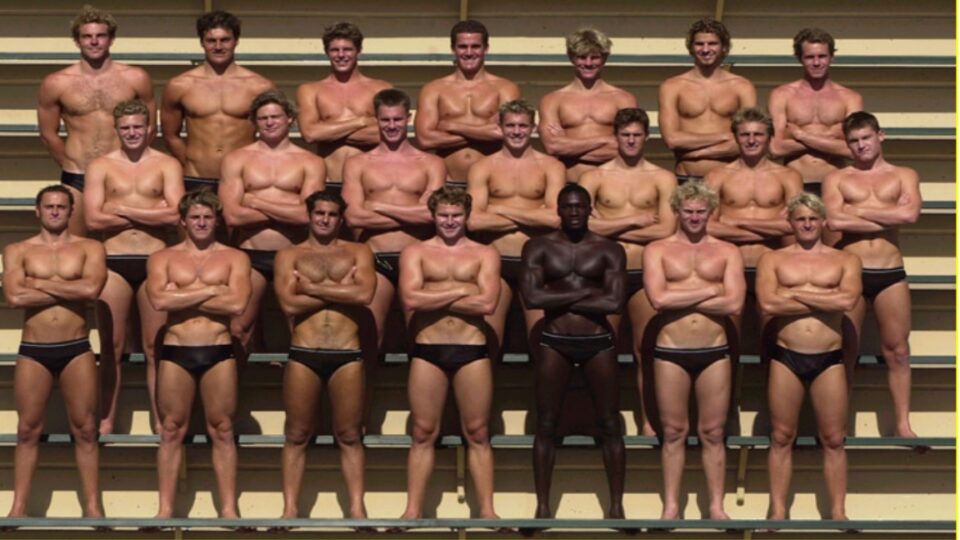Losers One and All

Losers One and All Picture of Rev. Dr. Tony Larsen standing at the lectern.
“Losers, One and All”
Rev. Dr. Tony Larsen
9-18-22
There is an author and speaker I like named Doug Adams. (Not the Doug Adams who wrote The Hitchhiker’s Guide to the Galaxy, but a former Episcopalian minister who now does a lot of work with people facing loss.) He got into this work in an interesting way. He had been a minister, but he couldn’t handle it and lost his ministerial standing. His wife also divorced him, so he lost his marriage. He then began losing control in his hands (through a disease like M.S.). And, because of all these losses, he began to lose his sense of meaning and purpose. And he looked at his life, thinking: What am I going to do now? Is there anything left that I’m any good at? And he realized: You know what I’m really good at? I’m really good at losing things. Maybe I can help people who are also losing things.
And that’s what he made his career–helping people who are losing their marriage, or their health, or their life, or their friends and loved ones, or their job or purpose or meaning and happiness. Whenever I hear that Doug is doing a workshop or lecture somewhere in the area, I try to go hear him, because I’ve found his insights and stories so helpful in my own life and ministry. And you know, I have often thought that schools and teachers–and all educational institutions, really–should include at least one course every year on how to lose..how to lose people and things and abilities and contests. Because losing (with dignity) is an extremely important life skill.
Now, this might not be obvious–especially in a culture like ours which worships winners–but I think this one-sided emphasis on winning does us a lot of harm. One example of this that my husband Craig and I still joke about is a poster we saw somewhere that said: “Second place… is the first loser.” What an attitude that is! Winning first place is so important that nothing else counts?? That’s crazy. No wonder people cheat and lie and steal so they can win. Anyway, if we drive anywhere now, and we’re looking for a parking place, if we are able to park in the second-closest parking place, we jokingly say, “Great, we get to be the first losers!”
The thing is, almost all of life entails losing (of some kind). When you’re young it might be losing your toys, your baby teeth, your friends who moved away; or the teacher you had last year who really liked you (unlike the one you have now). It might be losing some of your free time when you have to start doing homework or chores around the house; or maybe losing your parents’ undivided attention once you get a new baby brother or sister. What you lose may be the belief you used to happily hold that almost everything you said or did was so cute to adults that everyone was vastly interested in you, and it’s no longer true. (Why do you think kids sometimes revert to baby talk, to get the attention they used to have?) When you think about it, childhood is just swimming in loss.
When we’re older it’s losing our jobs, our youth, our looks, our reputation; losing our naivete, our innocence, our illusions; it’s losing our nice kids to “sullen” adolescents, and then losing adolescents to adulthood; losing our parents and family members; losing our health, our hair, our teeth (again!), our place; losing control, losing face, losing hope–and yes, sometimes losing our faith.
You know, if you talk to any minister or counselor or doctor or teacher–actually, anyone else involved in a helping profession–they’ll probably tell you that the people they see usually come to them because they are in a crisis of some kind, and that crisis is usually due to a loss. We’re all losers, whether we want to dwell on it or not. We’re other things too, of course, but we’re all losers too.
Incidentally, there’s a relationship between loss … and change. They’re not exactly the same thing–but they are related. Many of us are happy with change–as long as it was our idea. But when change comes from outside our control, we usually think of it as a loss. Likewise, we are all in favor of growth; but unhappy, for the most part, with decline, or deterioration. Yet growth and decay are both forms of change. It’s just that when we like the change, we tend to call it growth; and when we don’t, we call it decline.
The theme of loss is important in every religion, too. Whether it be the loss of life…or love…or wealth…or trust, every religion and spirituality deals with it.
For example, in the Gospel of Luke, Jesus tells the story of a rich person whose farmland is so fruitful that he doesn’t have enough room to store all his produce anymore. So he says to himself: “I will pull down my storehouses and build them bigger and greater; and there I will collect all my corn and possessions. And I will say to myself, ‘Man, you have many goods laid up for many years; take it easy, eat, drink, and be merry.'” But God said to him, “You idiot! Tonight your life will be required of you. You have made your money–who will get it now?” (Luke 12: 16-20)
In the end, we lose everything we ever owned.
Or, consider this saying of the Buddha in the Dhammapada: “These children belong to me, and this wealth belongs to me”–such thoughts will torment you. You yourself do not belong to yourself; so how much less do children and wealth.” (Dhammapada 5: 62)
One of my favorite stories from the Buddhist tradition is about a woman named Kisa Gotami who has lost her child. She comes to the Buddha with her dead child in her arms and asks him to work a miracle, bring the baby back to life. He tells her to get a mustard seed–but it has to be from a home where no one has died. So she goes from house to house, but she can’t find any place where someone hasn’t died, so she can’t bring back a mustard seed. When she comes back to the Buddha she realizes he didn’t bring her child back to life, but he showed her that loss is universal. And learning that is the miracle.
And there’s the story in the Hasidic tradition of Judaism about a rabbi who is asked a question by a student referring to Deuteronomy, chapter 6, verse 6, which says: “And these words, which I command you this day, shall be upon your heart.”
And the student asks, “Why is it said that way? Why are we told to put God’s words upon our heart? Why aren’t we told to place them in our heart?” And the rabbi answers, “It is not within our power to place divine teachings directly in our hearts. All we can do is place them on the surface of the heart, so that when the heart breaks, they will drop in.”
(Or, as an ancient Hebrew saying puts it: The only whole heart is a broken heart.)
A UU minister I know, the Rev. Mark Belletini, once wrote about a rainy winter in Oakland, California, which is where he lived at that time. It was 1993, and there had been great downpours of rain for days at a time. And one day Mark noticed a leak in the bedroom, where the water was falling down the wall in sheets–and ended up drenching the workshop below his apartment. And then Mark remembered that he had stored 2 stacks of his drawings from the past ten years in an alcove in the hallway. What if the water had wrecked those too?
“I went out to the hallway in panic,” he said. “…All 9,600 drawings I had done were fused into what amounted to a block of papier mache. Totally lost. Ten years of work. Kaput. Vanished. Forever. “Yes, I did weep. No question. It was so unexpected, so out of the blue. I couldn’t focus for days. When people said to me: ‘Well, at least you’re okay. They’re just drawings after all,’ I wanted to scream. …Those 9,600 drawings weren’t ‘just paper’ to me. They were a record of my soul’s emotional states, year by year, as I drew. As I buried my friends. As I led funerals for everyone I ever loved during the AIDS years. The predictability of Tuesday night drawing was what kept me going in some ways. It was the one reliable thing.
“I couldn’t focus for weeks. I wanted them back. They were all I could see. Not my loft, not my desk, not my friends… just the drawings. I managed to keep the clot of fused drawing pads for six weeks, hoping against hope that they might dry and could be partially restored. They molded instead. I had to toss them for good. I was heartbroken.”
The turning point for Mark happened when he saw some kids playing baseball at a local playground, and he noticed a family member in the stands watching the game and holding a red balloon. And when the game was over, this kid (whose brother was on the losing team) let his balloon go–on purpose. Just to mark the moment of loss. “And,” Mark said, “that is when I suddenly realized I had been holding on to this loss as if the past could somehow be rewritten, as if I was just waiting for the rainstorm to ‘unrain,’ and give me back my precious work. I realized that… unless I let go, and just said to myself, ‘I have to live in the days to come, not the days that have passed,’ I wasn’t allowing myself to live, just grasp and resist.” (from “Letting Go of the Past” in the May 2014 issue of Quest, published by the Church of the Larger Fellowship [UU])
Now, that realization didn’t take the grief away, of course. And if you asked Mark whether it was worth losing his almost-10,000 drawings for the insight he got from the experience, I’m sure he’d say NO. But it did allow him to move on with his life, taking the pain with him and making it part of his new reality, part of the continuing journey of his life.
You don’t really “get over” your big losses–but can get through them. You don’t forget them either, because they’re part of your life now. But you don’t let them control the rest of your life.
In other words, you are changed by your losses, but you don’t have to be chained to them.
[Missing Story Content Will Be Added In The Future]
You’ll note, in this story, that it was necessary for this patient to go through the grief of losing his leg. There’s no skipping over that. It would be weird if he had said at the start: “Oh, I lost my leg–well, I’m sure I can grow from this experience.” No, being sad and angry, feeling unfairly picked-upon–these are natural responses to loss. You see, you may be able to finish your picture with light coming through the crack, but you’ve got to go through the experience of angrily drawing that crack, over and over again, first.
Just as in the case of the UU minister who lost his drawings to rain. He could eventually decide to stop obsessing over the loss–because the obsession was keeping him from going forward–but he had to go through the grieving first.
(Perhaps that is why Jesus once said, “Blessed are they who mourn, for they shall be comforted.” The comfort comes afterthe mourning.)
It also helps if, out of your loss, you find a way to help other people facing a loss–as that young man did when he danced on one leg for the woman who had lost her breasts. That’s when you begin to let the loss have some redeeming value and show you a way forward that you wouldn’t have known about before.
The last thing I want to say is something about the loss of faith, because this is something many of us go through, and it’s not always that easy to deal with. (In fact, it might be a lot harder to endure than the examples I’ve already mentioned.)
I suspect all of us have felt the loss of some belief we once held dear–whether it was the belief that our parents could always protect us, or the belief that life is fair, or the belief in (and I’m going to be careful in my wording here, in case there are any younger people who haven’t lost this particular belief)–the belief in that mythical holiday elf with the crimson clothing and white facial hair whose mode of transportation is a toboggan powered by airborne caribou, one of whom has a shining proboscis. (You know who I’m referring to?)
I know that, when I gave up my belief in that particular personage, I was sad, but I wasn’t completely devastated. And that’s because, as my parents reminded me, I still had the magic of love and giving and generosity. Everything I thought I knew about the holiday elf had its counterpart in things I experienced in my daily life.
I think the same is true with concepts like God and afterlife. Even if you’ve lost your belief in either (or both) of these, you know that everything we know (or think we know) about God or heaven is based on things we’ve experienced here on earth. People may have told us, for example, that God is our heavenly father (or, in more progressive households, our mother). But for that to have meaning, we have to take our idea of a really good parent and expand it–expand it to perfection.
People may have told us that God is love. But that only has meaning because we’ve experienced love, and we take that experience and expand it to infinity–and say this is what God must be like.
We may say that heaven is eternal happiness. But “eternal” only makes sense because we have an idea of time that we can multiply to forever. And “happiness” only makes sense because we’ve had experiences of it that we can expand to perpetuity.
So… if we lose faith in a personal God who loves us, we still have love, on which our understanding of that God was built. And if we lose faith in heaven, where we were told that we can enjoy being with the people we loved on earth, we still have the experience of loving people here on earth, and enjoying their presence–even if it is a limited love and a limited presence.
And we can still imagine–and strive for–perfect love and perfect happiness.
Now, is the concept of perfect love as a mere ideal (that is, something we imagine but never actually find)–is it as comforting as an actual loving Being who cares for us unceasingly? Probably not.. But it’s nothing to sneeze at either. Love as an ideal is still a beautiful and transcendent thing–a star we never reach but which guides us on our path.
Is the idea of remembering the people we love who have died–of “keeping them in our hearts,” so to speak–as comforting as believing in an actual heaven where we will one day see them again? Probably not. But remembered love is still love, and we have had it.
My only point is that a loss of faith is one of many losses we may experience in our lives. And what is the appropriate response to all these losses? It’s generally to mourn–to feel the loss–and then, having gone through that mourning, to move on with our lives–a little different now for having lost and mourned–and ready perhaps to begin journeys we could not have taken had we not gone through the losses we endured.
So if you have lost the faith you once held (and that once gave your comfort), mourn the loss as you would any other. But never forget that, regardless of what you have lost, there is always something left of what you had–the things it was built on; the memories that are now keepsakes; the experiences that went into making you who you are now, different from who you might have been.
And remember that you will lose again. And again. But you’ve had a lot of experience with loss, haven’t you? In fact, you’re probably quite good at losing by now. So maybe you’re better prepared for all the losses to come.
To be human is to be a loser. But it is also to be alive.



